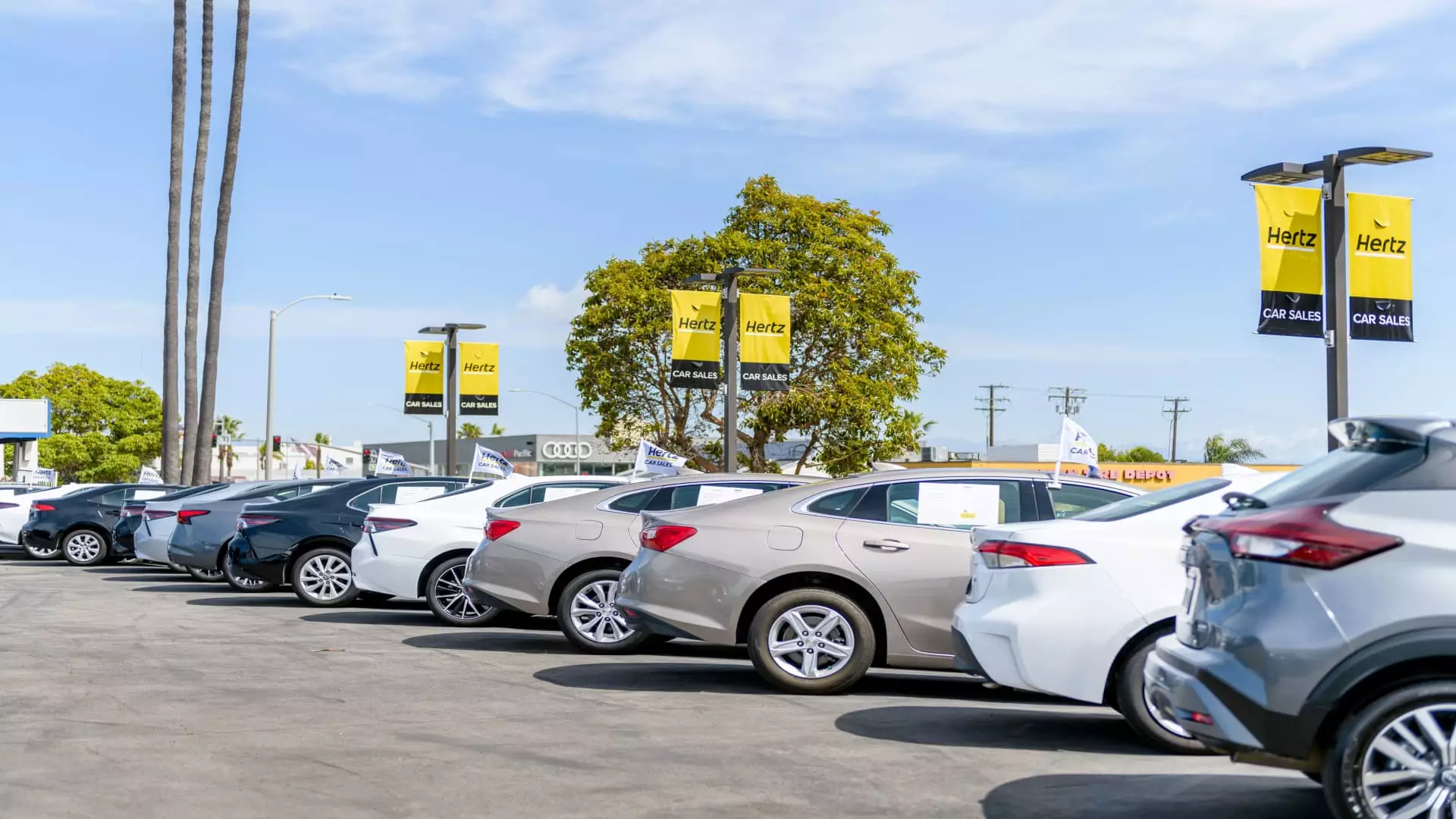In a bold move that signals a shift in the automotive retail landscape, Hertz has announced its entrance into the online used car market through a partnership with Amazon Autos. This strategic alliance aims to merge the familiar convenience of digital shopping with Hertz’s extensive used vehicle inventory, providing consumers with a seamless buying process. Unlike conventional dealerships that emphasize showroom visits and in-person negotiations, this approach leverages the trust and reach of Amazon’s platform, potentially redefining what consumers expect from car purchases.
What makes this initiative particularly compelling is its acknowledgment of changing consumer behaviors. Today, digital-first thinking dominates many sectors; why should car buying be any different? The shift towards remote, contactless transactions is not just a matter of convenience but a necessity, especially in a post-pandemic world where in-person interactions have become less appealing. Hertz’s strategy demonstrates a forward-thinking approach, aligning with the broader digital transformation sweeping across industries. However, whether this truly benefits consumers or merely commodifies a significant investment remains a topic worth scrutinizing.
Potential Benefits as a Center-Right Liberal Perspective
From a cautiously optimistic, center-right liberal viewpoint, the partnership embodies a pragmatic move toward economic efficiency and innovation. Integrating Hertz’s used vehicles into Amazon’s platform increases accessibility for consumers who prefer online shopping, ultimately promoting competition and choice. It also encourages the modernization of the traditionally slow and opaque used car buying process. This aligns with the belief that free markets and technological progress should serve to empower consumers rather than constrain them with outdated practices.
Moreover, Hertz’s expansion into digital retail can stimulate local economies by increasing sales and employment opportunities linked to their broader retail footprint. For consumers, this move promises a higher degree of transparency—price comparisons, vehicle histories, and online approvals—that can diminish the often predatory tactics employed by some traditional dealerships. It represents a step towards a more efficient, consumer-focused automotive marketplace that balances innovation with tangible benefits—speed, choice, and confidence.
However, there’s an underlying risk: the danger of commodifying used vehicles to the point where the quality and integrity of the buying process are compromised for profit. A reliance on a digital marketplace might lead to less thorough inspections or transparency lapses, especially if the focus shifts primarily to high-volume sales. Therefore, while this strategy could elevate consumer choice, it demands rigorous oversight to ensure standards are maintained.
Challenges and Risks Behind the Corporate Strategy
Despite the promising outlook, this new venture is not without its complications. Hertz’s recent history illustrates a company resilient but also desperate to reclaim its footing after COVID-19 pandemic-induced bankruptcy and missteps in the EV strategy. While the “Back-to-Basics” approach indicates a focus on core strengths like fleet management and revenue optimization, expanding into online car sales introduces fresh vulnerabilities.
The partnership’s initial focus on four major cities—Dallas, Houston, Los Angeles, and Seattle—while logical, exposes Hertz to the challenges of scaling effectively across a broader geographic landscape. Consumer trust in online used car purchases from a rental company must be cultivated carefully, especially amidst concerns about transparency and quality control. Additionally, Amazon’s fledgling auto marketplace is still establishing its credibility, and any missteps could tarnish both brands’ reputations.
Furthermore, the move into online used vehicles may threaten established dealership practices and relationships, potentially leading to resistance from traditional auto sellers and local dealerships. The risk of monopolizing segments of the used car market could backfire if consumers perceive this as a move primarily designed to maximize profits at the expense of personalized service and value.
The Future of Digital Car Retailing: A Mixed Bag
While the partnership between Hertz and Amazon offers a tantalizing glimpse into the future of car purchasing—more streamlined, digital, and accessible—it also raises important questions about the long-term effects on the auto industry. Will this model truly democratize car ownership, or will it serve to further consolidate market power in the hands of big corporate players?
As a center-right liberal observer, I see merit in leveraging technology and market competition to benefit consumers, but I am also wary of turning the transaction of buying a used vehicle into a purely transactional, impersonal process that erodes individual service and oversight. Legacy dealerships, local businesses, and consumers themselves must remain vigilant to protect transparency, quality, and fairness in this emerging landscape.
Ultimately, Hertz’s partnership with Amazon Autos is a significant gamble—one that could either herald a new era of digital automotive retail or deepen the stratification and commodification of a market already riddled with issues. The outcome will depend on how these corporations manage transparency, quality, and customer trust amidst rapid expansion and digital transformation.

